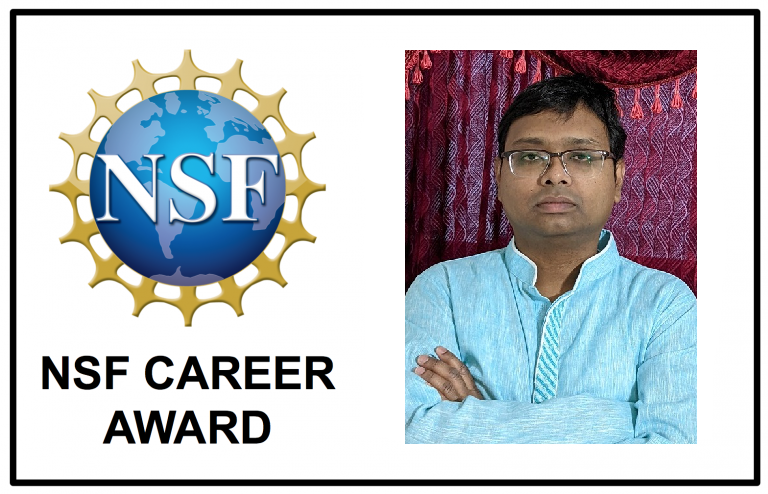
February 22, 2021
Shahriar Nirjon, assistant professor of computer science at UNC-Chapel Hill and director of the UNC Embedded Intelligence Lab, has received a Faculty Early Career Development (CAREER) Award from the National Science Foundation (NSF). The CAREER program is a Foundation-wide activity that offers NSF’s most prestigious awards in support of junior faculty who exemplify the role of teacher-scholars through outstanding research, excellent education and the integration of education and research within the context of the mission of their organizations.
This five-year, $561,000 grant, titled “CAREER: Toward Embedding Perpetual Intelligence into Ultra-Low-Power Sensing and Inference Systems,” will support his continued research on making small, portable, resource-constrained, embedded systems capable of sensing, learning, adapting, and evolving over an extended period of time.
Years of technological advancements have made it possible for small, portable, electronic devices to last for years on battery power, and run forever when powered by harvesting energy from their surrounding environment. Unfortunately, the prolonged life of these ultra-low-power systems poses a fundamentally new problem. Although these devices last for an extended period of time, programs that run on them become obsolete when the nature of sensory input or the operating conditions change. The effect of continued execution of such an obsolete program can be catastrophic. For example, if a cardiac pacemaker fails to recognize an impending cardiac arrest because the patient has aged or their physiology has changed, these devices will cause more harm than good. Hence, being able to react, adapt, and evolve is necessary for these systems to guarantee their accuracy and response time.
This CAREER project is aimed at devising algorithms, tools, systems, and applications that will enable ultra-low-power, sensor-enabled, computing devices capable of executing complex machine learning algorithms while being powered solely by harvested energy. As opposed to common practices where a fixed classifier runs on a device, this project takes a fundamentally different approach, wherein a classifier is constructed in a manner that allows it to adapt and evolve to changes in the sensory input or application-specific requirements, such as the time, energy, and memory constraints, during the extended lifetime of the system.
More details on this award can be found on the NSF website.
Nirjon joined the Department of Computer Science in 2015. Prior to joining UNC, he was a research scientist at Hewlett-Packard (HP) Labs. He received his Bachelor of Science and Master of Science in computer science and engineering from the Bangladesh University of Engineering and Technology (BUET) and received his Doctor of Philosophy in computer science from the University of Virginia, Charlottesville.
